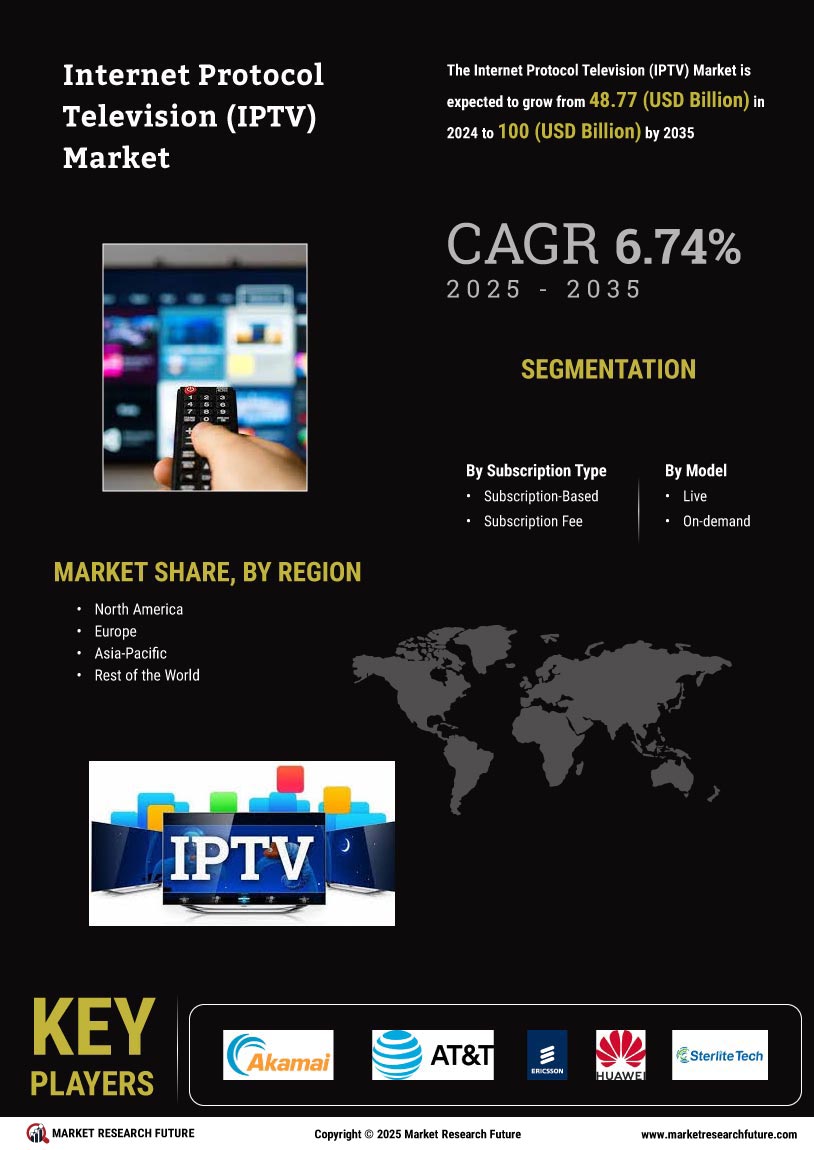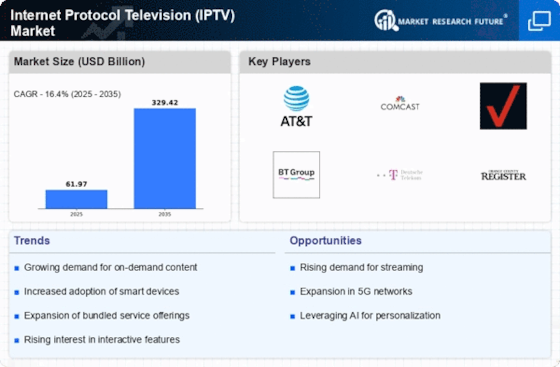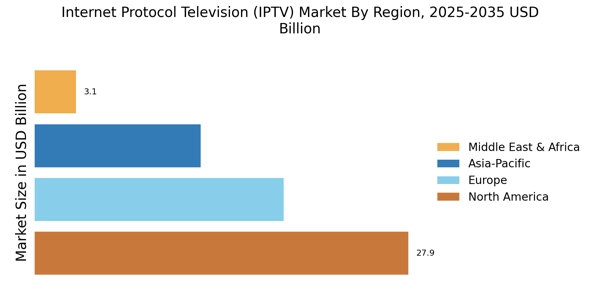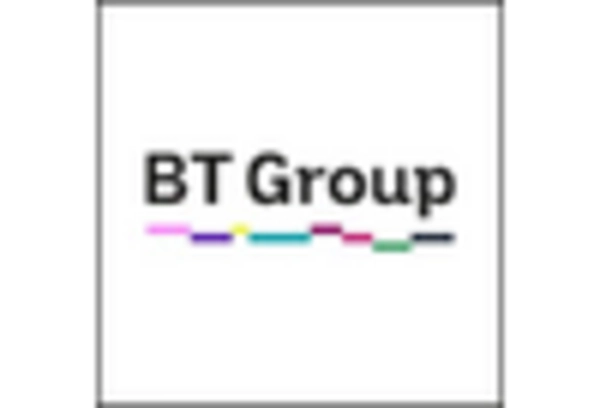Rising Popularity of Smart Devices
The Internet Protocol Television (IPTV Market) Market is witnessing a rise in the popularity of smart devices, which is reshaping how consumers access content. With the increasing adoption of smart TVs, smartphones, and tablets, viewers are now able to stream IPTV Market services on multiple devices. As of 2025, it is reported that nearly 70% of households own at least one smart device capable of streaming IPTV Market content. This trend is encouraging service providers to optimize their platforms for various devices, ensuring a consistent and high-quality viewing experience. The convenience of accessing IPTV Market services on-the-go is likely to attract a broader audience, further propelling the growth of the IPTV Market. As consumers continue to embrace smart technology, the demand for IPTV Market services is expected to rise correspondingly.
Advancements in Internet Infrastructure
The Internet Protocol Television (IPTV Market) Market is significantly influenced by advancements in internet infrastructure. The proliferation of high-speed broadband connections has made it feasible for consumers to access IPTV Market services without interruptions. As of 2025, it is estimated that over 80% of households have access to high-speed internet, facilitating seamless streaming experiences. This improvement in infrastructure not only enhances the quality of service but also expands the potential customer base for IPTV Market providers. Furthermore, the rollout of 5G technology is expected to further bolster the IPTV Market by providing faster and more reliable connections. This technological evolution is likely to encourage more consumers to adopt IPTV Market services, thereby contributing to the overall growth of the industry.
Increasing Demand for On-Demand Content
The Internet Protocol Television (IPTV Market) Market is experiencing a notable surge in demand for on-demand content. Consumers increasingly prefer the flexibility to watch shows and movies at their convenience, leading to a shift from traditional broadcasting. This trend is reflected in the growing number of subscribers to IPTV Market services, which reportedly reached over 1 billion worldwide in 2025. The ability to access a vast library of content without the constraints of scheduled programming is appealing to many viewers. As a result, service providers are investing heavily in content acquisition and development to meet this demand. This shift towards on-demand viewing is likely to continue driving growth in the IPTV Market, as more consumers seek personalized viewing experiences that align with their lifestyles.
Expansion of International Content Offerings
The Internet Protocol Television (IPTV Market) Market is experiencing an expansion of international content offerings, which is attracting a diverse audience. As consumers become more globalized, there is a growing demand for content from different cultures and regions. IPTV Market providers are responding by acquiring international programming and creating partnerships with foreign content creators. This trend is evident in the increasing number of international channels available on IPTV Market platforms, which reportedly grew by 25% in 2025. By offering a wider array of content, IPTV Market services can appeal to multicultural audiences and enhance their market reach. This expansion not only enriches the viewing experience but also positions IPTV Market providers as competitive players in the broader entertainment landscape.
Shift Towards Personalized Viewing Experiences
The Internet Protocol Television (IPTV Market) Market is increasingly characterized by a shift towards personalized viewing experiences. Consumers are seeking tailored content recommendations based on their viewing habits and preferences. This trend is prompting IPTV Market providers to invest in advanced algorithms and artificial intelligence to enhance user experience. As of 2025, it is estimated that over 60% of IPTV Market subscribers utilize personalized content features, indicating a strong consumer preference for customized viewing. This focus on personalization not only improves customer satisfaction but also fosters viewer loyalty, as users are more likely to remain subscribed to services that cater to their individual tastes. Consequently, the emphasis on personalized experiences is likely to drive further innovation and competition within the IPTV Market.


















